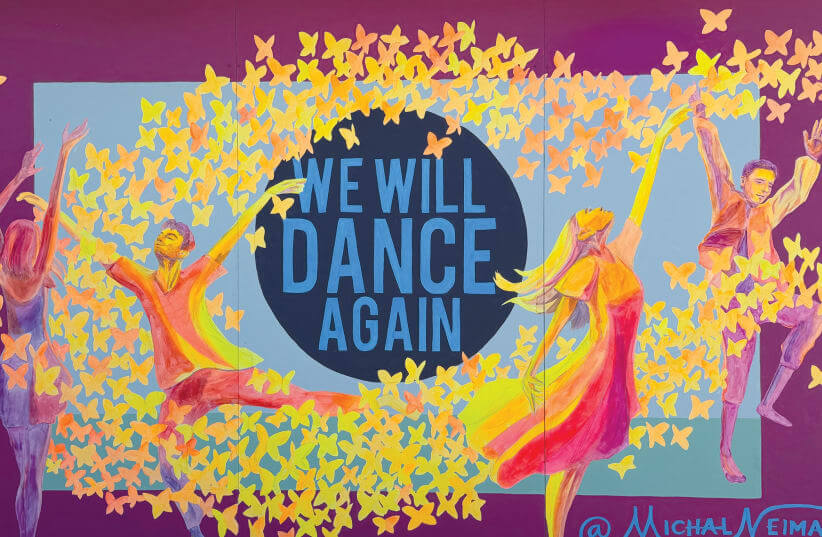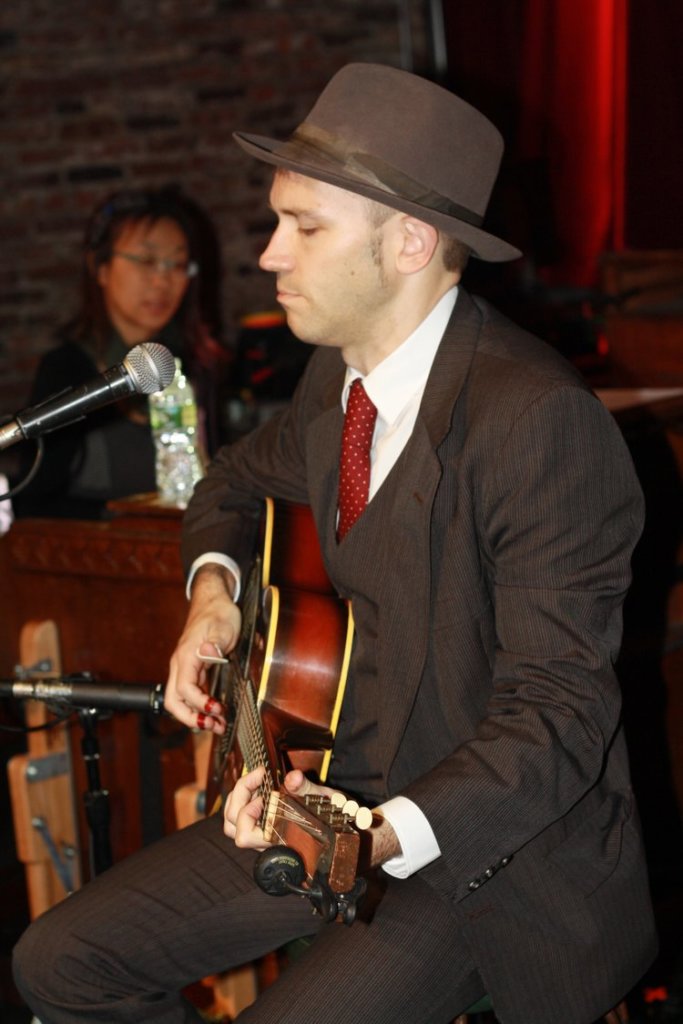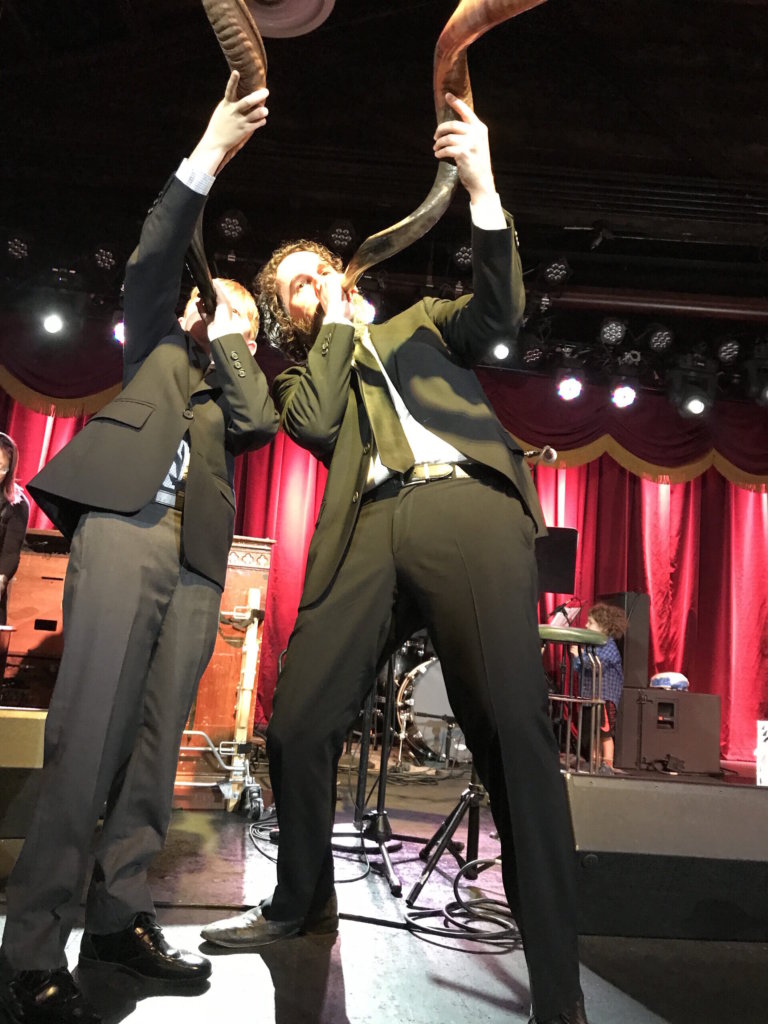Original article was published on The Jerusalem Post
Sababa attendees had the opportunity to experience the best aspects of a traditional music festival while also sampling workshops and merchandise from vendors.
In many ways, the four-day Sababa Music Festival in Hammonton, New Jersey, was like other music festivals – top bands on many stages, vendors, barbecues, merch, camping, cornhole, yoga, frisbee, lake swimming, alcohol, some recreational drugs, people milling about barefoot, and unlimited opportunities to socialize with old and new friends.
But Sababa, held this year on June 27-30 and nearly every year since 2017 at a number of locations in the New York area, is quite unique. The 1,300 festival attendees were almost exclusively Jewish. They came together from extremely diverse backgrounds and locations such as New York, New Jersey, Maryland, Pennsylvania, Texas, Wisconsin, Arizona, Canada, and Israel. Some were looking to get closer to traditional Judaism and enjoyed putting on tefillin (phylacteries) for the first time. The large group of Rabbi Nahman of Breslov followers blasted music, danced, and shared soup with anyone who visited their large “Nanachville” village.
This year, there was added significance to many of the attendees due to connections to music festivals, particularly the Nova Festival, which took place last Simchat Torah in Israel and was among the targets of the October 7 Hamas massacre, resulting in hundreds of celebrants’ deaths.
When Riverdale resident Barry Kanner visited The Nova Music Festival Exhibition – The Moment Music Stood Still recently in New York, he knew instantly that he needed to participate in the Sababa festival.
“While fighting back the nausea and tears, there was one thought that gave me solace,” he said. “It was my plan to be at Sababa, where, as a proud Jew, I will counter evil, blind hatred, and darkness with friendship, celebrating Shabbat and great music. We will dance again!”

Veteran concert promoter Peter Shapiro, owner of the Brooklyn Bowl and The Capitol Theater, shared Kanner’s sentiments about the need to dance again. “The only way to pick ourselves back up from the terrible trauma that October 7th has caused for all humans is to dance again, so I am very much looking forward to how we can pick up the pieces through the spiritually replenishing magic of a live music festival.”
The themes of love for Israel and “dancing again” were everywhere. Many tents and campsites featured Israeli flags and the Nova festival; enthusiastic fans waved the flags as Matisyahu, who has done so in Israel since October 7, performed “One Day” and “Jerusalem.”

Artist Michal Neiman created a large, colorful “We Will Dance Again” mural featuring 364 butterflies that were filled in by attendees with the names of people murdered at the Nova Festival.
Neiman, 27, a nurse and artist who also constructed a whimsical Shabbat Table in a covered tent, where attendees could go for solace throughout the festival, noted that “we have all been thinking about Nova and will, at some point, while here.” For that reason, she decided to create a “visual tribute.” Participants chose file cards with names of the Nova victims, which they wrote on blank butterflies on the exhibit, and kept the file cards for remembrance. “Everyone could pick a card and hold on to it and dance with it,” Neiman said.
Harrison Ferber and his fiancée, from Lower Manhattan, picked a blue card and added the names of Lori Vardi, 26, of Raanana, and Einav Elkayam Levy, 32, of Givatayim. They were proud to write the names inside the butterflies and take the cards home with them to continue remembering the victims.
SABABA ATTENDEES had the opportunity to experience the best aspects of a traditional music festival while also sampling workshops and merchandise from vendors. The musical offerings kicked off Thursday with Mun on the main stage and Chillz/Jammz at the bonfire stage.
Others were looking for their place in the Jewish world as they moved beyond haredi Judaism. A 20-something woman in shorts and a t-shirt was speaking with another attendee in Yiddish, describing her Satmar background. Another man was telling a new friend that he grew up ultra-Orthodox in Baltimore and remained religious “until five years ago.”
Liba Yoffe, who led a Saturday afternoon workshop on “Breaking the Chains of Fear,” is a formerly religious, divorced mother of four who shared her story of being the first woman to compete on the TV show American Ninja in a long dress and wig. A blonde, American-born 20-something, draped in an Israeli flag throughout the weekend, described herself as living “somewhere in Gush Etzion” where she “does farming.”
Friday’s musical highlights, which went from 1:30 pm until just before 8:13, the time for Shabbat candle-lighting, included rapper Kosha Dillz, who also led a Shabbat day workshop on “How to Become a Jewish Rapper in 57 Minutes,” Souls on Fire, Top Cats, a versatile Grateful Dead cover band, and others.
On Friday, following optional morning prayers, the Zen Zone featured communal shakshuka cooking with chef Nir Margalith and pre-Shabbat shakshuka tasting to raise awareness of Havat Marpe (Healing Space), located in Rishpon, Israel, and its unique, integrated response to collective trauma “Our organization wants to support Nova. We have hosted 3,500 survivors so far,” he said. Their work has also impacted young adults from Kibbutz Re’im, 2,300 combat soldiers, and others. They expect to help 28,000 by the end of 2024. Margalith, a chef who has worked in the tourism industry, is traveling to America every six weeks to cook at private events that raise money for the organization.

Pre Shabbat events featured a healing session with Tamar, team-building activities with Shilo, Kabalah Yoga, and a Wrapunzel head-wrapping workshop.
While many came to Sababa for the music and workshops, many elected to spend a great deal of time socializing and hosting dance parties and dining events in specially designated camping villages with names such as The Persian Peninsula, The Jungle, The Chevre (Philadelphia-area young professionals), Burning Heart/Vallevue, and Nanachville.

AS SHABBAT approached, some lined up for the modern showers trucked in for the event. Others continued dancing, swimming, and hanging out. For the fully Sabbath-observant, an extensive eruv (enclosure) was constructed to permit carrying, and a sophisticated apparatus was built to constantly replenish hot water, thereby enabling the drinking of hot coffee on Shabbat.
A spirited song-and-dance-filled Kabalat Shabbat (Welcoming of Shabbat) took place after candle lighting near the main stage; no one seemed in a rush to get to dinner, and it continued until 10 p.m. Everyone then proceeded to the packed dinner tent, where there was ample and tasty food for all 1,300 guests. It was still rocking well past midnight, when two recently married couples celebrated Sheva Brachot (the “Seven Blessings” recited over wine during the wedding ceremony, after the wedding feast, and following festive meals during the next seven days). The festival organizers were proud that 15 couples have married after meeting at previous Sababa festivals.
On Shabbat morning, Rabbi Shraga Sherman of Chabad of the Main Line (Philadelphia) and father of Mendel Sherman, one of the organizers, delivered an optional 10:30 am class on hassidism, followed by traditional davening and an equally well-attended yoga session.
There was something for everyone on Shabbat day, including workshops by Spirit Fit Life founder Liba Yoffe, Kosha Dillz, presenters on Jewish comedy and Jewish poetry, a panel on second chances, and a popular, interactive session on self-defense. The lake was open for swimming, and at least one young married couple was observed fighting and the wife crying. They apparently worked hard to resolve their differences and were seen holding hands while walking away.
Those who were not fully Sabbath observant were asked to respect the sanctity of the day for those who were. No one seemed to object to those who chose to enhance their Shabbat with barbecues or weed smoking.
Live music took a break over Shabbat, though it resumed promptly as the sun went down with a spirited 10 p.m. musical havdalah (end of Shabbat ceremony) and bonfire with Binyomin Lerner at the Bonfire Stage. The music continued all night long on both the Bonfire Stage and the Main Stage. Headliner Matisyahu had the crowd singing, dancing, and waving Israeli flags as he performed from 12 midnight until1:30 a.m., accompanied by one of his sons for two of the songs). The other headliner, Zusha, took to the stage at 2:15 a.m.; the crowd was not bothered by the rainstorm, including thunder and lightning, as the remaining performers, Levyticus and FreeJ, were still scheduled for sets at 4 and 5 a.m.
Matisyahu was excited to perform, and he appreciated just how different Sababa is from most other events.
“After 10/7, there has been a shift in the world. We are more united now as a Jewish people. Obviously, some Jews are running in the opposite direction. For many, coming together is very important. Sababa is a perfect example. Jewish bands, Jews from different walks of life, camping, Shabbat. It’s a chance to experience a real sense of ahdut (unity), healing, and empowerment that we are all desperate to have now,” he said.
Festival co-founder Mendel Sherman, 31, describes himself as “always out of the box and not fitting the mold.” He always loved music but never found a “creative outlet.” However, a Phish concert that he attended in 2012 was life changing for him. “It lit a fire under me,” said Sherman. “We need to do this in the Jewish world – a fusion to tie it all together.” Friends introduced him to Alter Deitsch. and the first Sababa was born in June 2017. “It snowballed from there,” noted Deisch, 33, as the two described the growth and evolution of Sababa.
Deitsch, who was content to simply “have a lot of fun around music and camping,” said they “realized, after the first year, that it is way deeper; people from different cultures start to meet.” He proudly shared the story of a shidduch (matchmaking) that occurred in the first event between “people who wouldn’t have met” otherwise. He used the word “cross-pollination” to describe what takes place regularly at Sababa. “There is real interconnection and pollination of all types of Jews,” he said.
Deitsch and Sherman feel their job is “to set the ground for people to be comfortable and to be their fullest selves, with no judgment, within Judaism.” In the wake of Nova, their conviction was strengthened that “Sababa has to be Sababa. The need for this has intensified.”
Participants have been home already for days and continue to post in the Sababa WhatsApp group and Instagram, and many are still proudly wearing their festival bracelets. And they are discussing next year’s festival and other meaningful opportunities for Jews to gather together.
Sababa has danced and will dance again.






